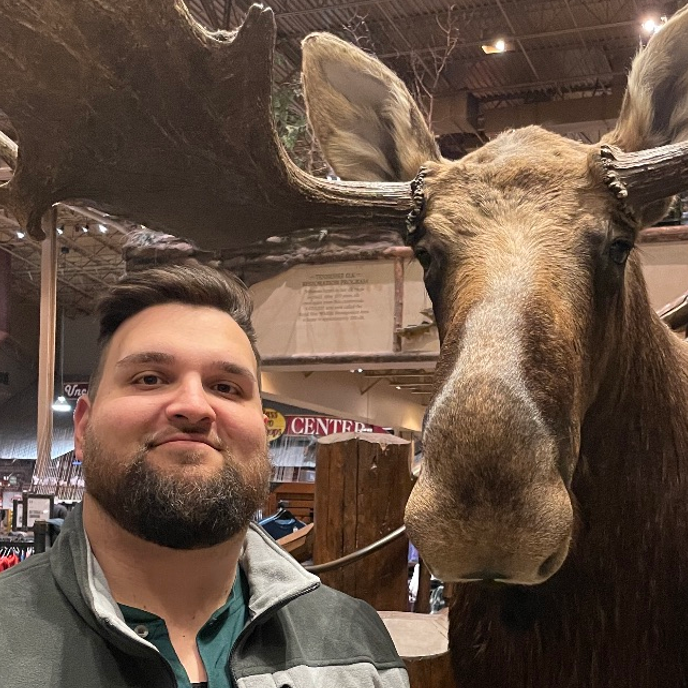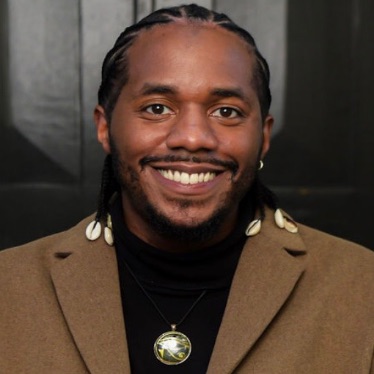What is the difference between life coaching and personal growth coaching?
Though the terms often overlap, there are distinct differences between life coaching and personal growth coaching in focus and approach:
- Life coaching tends to address broad goals such as career transitions, relationships, productivity, or wellness routines.
- Personal growth coaching dives deeper into the internal landscape: mindset shifts, emotional intelligence, motivation, identity, and long-term purpose.
Where a life coach may help you land your dream job, a personal growth coach helps you understand what you truly want, why you’re holding yourself back, and how to build sustainable confidence from the inside out.
Both approaches can be transformative, and many life coaching therapy programs integrate personal growth as a core focus.
How is coaching different from therapy or counseling?
Understanding the distinction between coaching and therapy is key when deciding what kind of support you need.
Coaching:
- Oriented toward goals and future growth
- Focuses on strategy, accountability, and action
- Typically does not diagnose or treat mental health conditions
- Designed for functioning individuals who want to optimize their life or overcome specific challenges
- Often uses structured sessions with assignments, planning, and mindset tools
Therapy:
- Oriented toward healing and emotional insight
- Focuses on past trauma, mental health diagnoses, and behavioral change
- Licensed mental health professionals are qualified to treat conditions like depression, anxiety, or PTSD
- Suitable for individuals experiencing distress, dysfunction, or clinical symptoms
In some cases, individuals may benefit from both. For example, someone working with a self improvement therapist may also hire a personal growth coach to focus on habit change or future planning once they’ve stabilized emotionally.
Who can benefit from life or personal growth coaching?
You don’t have to be in crisis—or even struggling—to benefit from coaching. In fact, some of the most common clients of personal growth coaching are high-functioning individuals who feel they’re not living up to their full potential.
Coaching is ideal for people who:
- Feel stuck in a rut and unsure why
- Want to develop greater self-awareness and motivation
- Are transitioning through life changes (career, divorce, relocation, identity)
- Struggle with procrastination, perfectionism, or fear of failure
- Have goals but keep sabotaging themselves
- Want more confidence in relationships or leadership
- Are seeking therapy for self-improvement rather than clinical healing
- Are exploring values, purpose, or alignment
The best candidates for coaching are curious, open to feedback, and willing to take responsibility for their growth—with the help of a guide who challenges and supports them.
What kinds of goals can I work on with a coach?
A personal growth coach can help you turn vague intentions into measurable, meaningful progress. Some common goal areas include:
Personal Development
- Building self-confidence
- Breaking bad habits or creating new routines
- Overcoming self-doubt or imposter syndrome
- Enhancing emotional intelligence
- Developing resilience and adaptability
Career and Purpose
- Navigating a career pivot
- Improving leadership or communication skills
- Clarifying life purpose and direction
- Balancing ambition with well-being
- Launching a business or creative venture
Relationships
- Improving communication and boundaries
- Navigating dating, marriage, or breakups
- Rebuilding self-worth after toxic dynamics
- Cultivating deeper friendships or intimacy
Health and Lifestyle
- Creating sustainable fitness or nutrition habits
- Building a morning routine or sleep schedule
- Reducing stress and increasing mindfulness
- Strengthening spiritual or value-based practices
You don’t need to arrive with a fully formed goal. A skilled coach will help you clarify what you want—and what’s been blocking you from getting there.
Can coaching help with issues like low self-esteem or lack of purpose?
Yes. While chronic low self-esteem may require deeper therapeutic work, many individuals benefit from coaching that focuses on building confidence through action. Rather than diving into childhood wounds, coaching helps you take present-moment steps to prove your own worth to yourself.
Coaches use tools to help you:
- Identify negative self-talk and limiting beliefs
- Reframe failure as feedback
- Set and celebrate small wins
- Align your actions with your values
- Define success on your own terms
If you’re feeling disconnected from your purpose, personal growth coaching can also help you explore meaning and motivation. Through assessments, deep questioning, and strategic planning, your coach will help you clarify what really matters—and how to live in alignment with it.
What happens in a typical coaching session?
A typical personal growth coaching session lasts 45–60 minutes and is highly conversational. Sessions are usually structured as follows:
- Check-in: How are you feeling? Any wins or roadblocks since the last session?
- Clarify the focus: What’s today’s priority topic or goal?
- Deep dive: Explore patterns, thoughts, behaviors, and perspectives
- Co-creation: Brainstorm strategies, tools, or mindset shifts
- Action planning: Decide what you’ll practice or implement before the next session
- Close: Set intentions, note insights, and confirm next steps
Between sessions, your coach may offer:
- Reflection prompts or journaling exercises
- Accountability check-ins
- Progress tracking tools
- Feedback on real-time situations.
How long does it take to see progress with a coach?
While every individual’s growth timeline is different, many clients notice positive changes within 3–6 sessions. These may include:
- Improved clarity and confidence
- Better decision-making
- New habits or routines
- Reduced overwhelm
- Increased energy and motivation
Longer-term coaching (3–6 months or more) is ideal for complex goals or deeper transformation. This allows you to:
- Reinforce new behaviors
- Sustain mindset shifts
- Navigate setbacks with support
- Align your life with your core values
Coaching isn’t a quick fix—but it can accelerate results when paired with commitment and follow-through.
Are coaching sessions structured or customized?
Most coaches offer a flexible structure that adapts to your needs. A well-rounded coaching program may include:
- An initial intake session or discovery call
- Goal-setting exercises and vision mapping
- Weekly or biweekly sessions
- Email or message support between sessions
- Customized tools like habit trackers, assessments, or progress logs
Whether you prefer a highly structured plan or a more fluid, exploratory approach, a good coach will adjust their methods to meet your pace and personality.
Do coaches specialize in specific areas like health, career, or relationships?
Yes. Many coaches offer niche services such as:
- Career coaching (job change, leadership, workplace dynamics)
- Health coaching (nutrition, movement, chronic illness management)
- Relationship coaching (communication, dating, breakups)
- Confidence coaching (assertiveness, presence, self-belief)
- Creativity coaching (writing, entrepreneurship, performance)
- Spiritual growth coaching (values, mindfulness, alignment)
If your goal is highly specific, consider choosing a coach who specializes in that domain. However, for broad emotional or motivational growth, a self improvement therapist with coaching skills may also be a great fit.
How do I choose the right coach for me?
Finding the right coach is like finding the right workout or therapist—it’s personal. Here’s what to look for:
- Certification and training: Look for coaches trained by ICF-accredited programs or other reputable institutions.
- Style and approach: Some coaches are gentle guides; others are bold motivators. Ask yourself what style inspires you most.
- Experience and specialization: Do they work with people like you? Can they speak to your specific goals?
- Connection and trust: Chemistry matters. You should feel respected, challenged, and understood.
- Clarity on structure and cost: A professional coach will clearly explain their pricing, packages, and what’s included.
Most offer a free discovery session—use this time to ask questions, share your goals, and assess the vibe. Trust your intuition.
Is life coaching regulated or licensed like therapy?
No. Coaching is currently an unregulated field, meaning anyone can call themselves a coach regardless of training or ethics. That’s why it’s important to:
- Verify credentials and training
- Check for testimonials or reviews
- Clarify their code of ethics or referral policy
- Make sure they’re transparent about boundaries (e.g., they don’t treat mental health disorders)
In contrast, therapy is regulated, and therapists must hold licenses and follow strict guidelines. If you’re dealing with trauma, depression, or anxiety, begin with a licensed therapist for personal growth before transitioning to coaching.
Is coaching covered by insurance or considered a medical service?
In most cases, personal growth coaching is not covered by insurance. That’s because coaching is considered an educational or motivational service—not a medical treatment.
However:
- Some employers offer coaching stipends or wellness benefits that apply
- Flexible spending accounts (FSAs) may cover coaching if it’s prescribed by a physician for a health-related reason
- If your coach is also a licensed therapist and you're addressing diagnosable concerns, some sessions may be billable through insurance
Always clarify with your provider or coach in advance.
Personal growth coaching is not about changing who you are—it’s about uncovering your potential, honoring your values, and living with greater purpose, clarity, and confidence. Whether you're seeking therapy for personal growth, exploring life coaching therapy, or working with a self improvement therapist, you’re choosing to invest in the most valuable asset you have: yourself.
You don’t have to do it alone—and you don’t have to wait for things to fall apart to get support. Growth is available right now.













